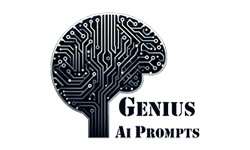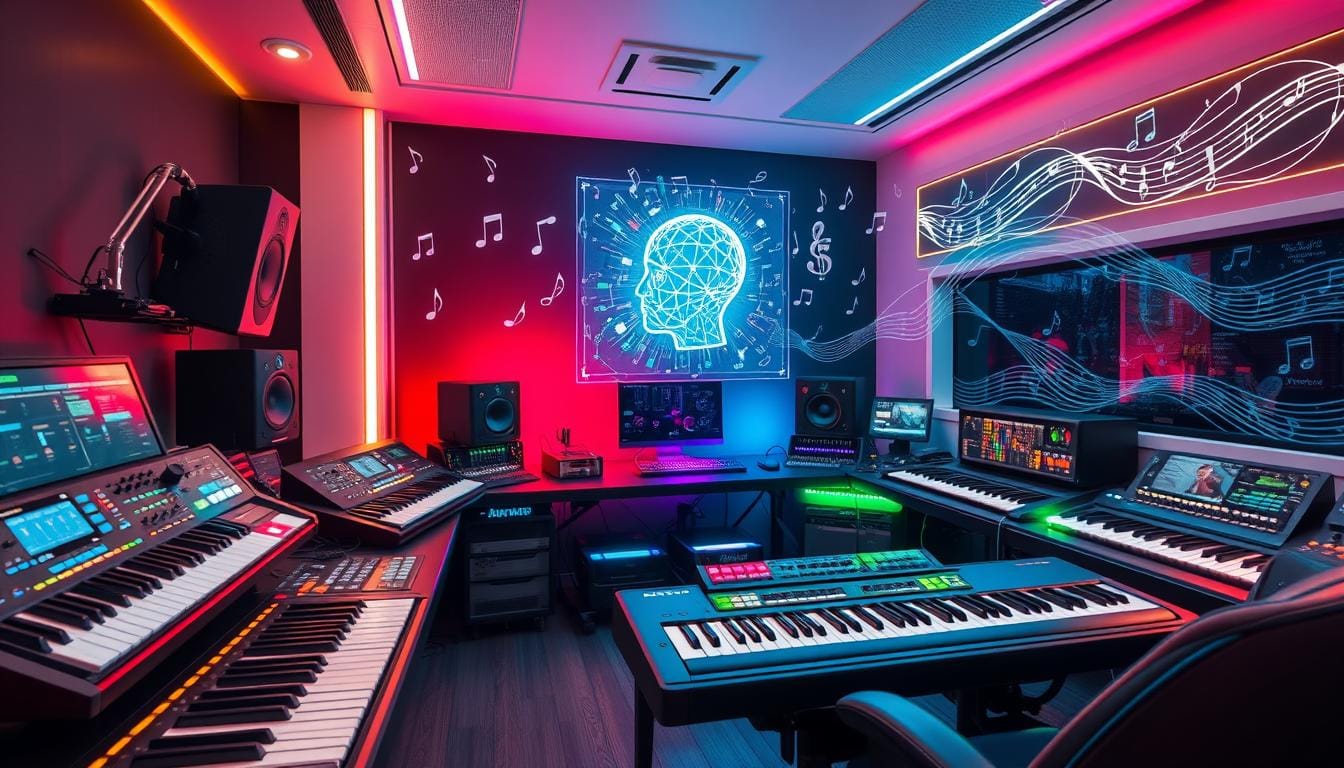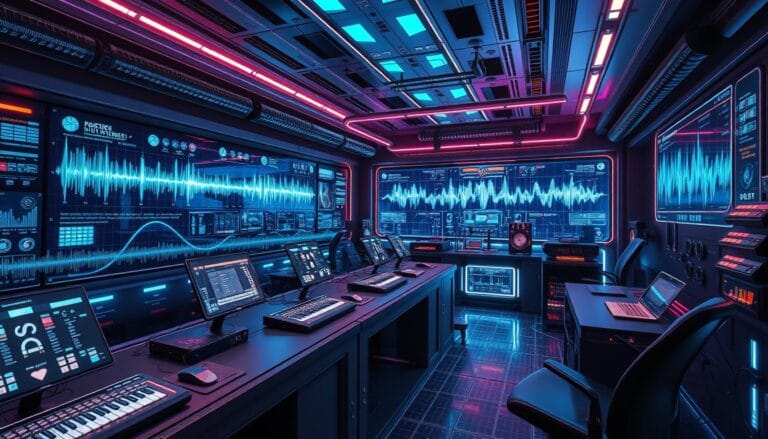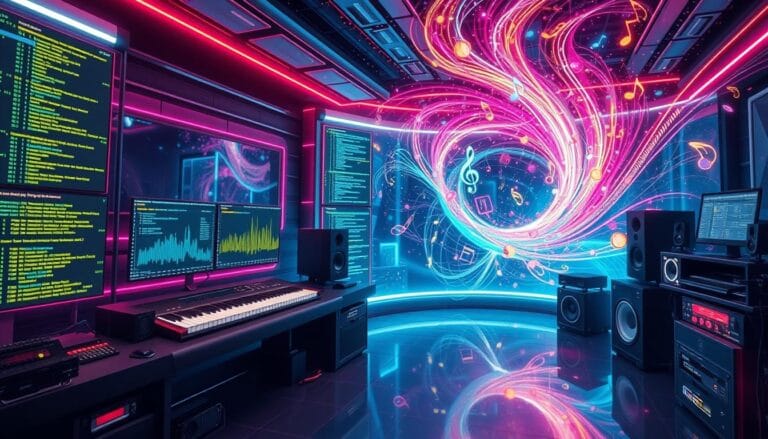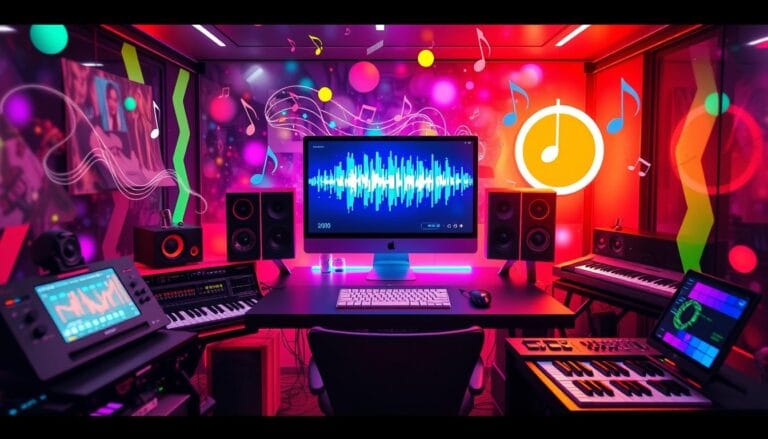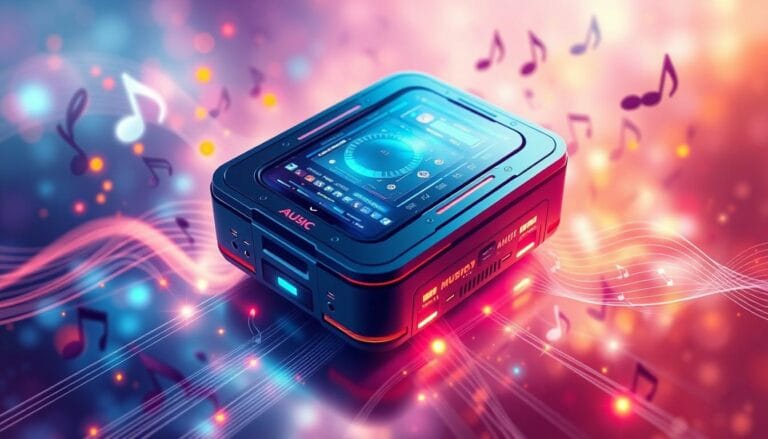Make Music Using MIDI AI:Unlock Your Creative Genius with AI-Generated Music
I’ve always been excited about how technology can change the way we create. Now, with AI music tools, the possibilities are endless. Imagine making unique, royalty-free tracks easily, exploring many themes and moods to improve your music.
Thank you for reading this post, don't forget to subscribe!The Soundful AI Music Generator is changing music creation. It lets artists, producers, and content creators like you explore new sounds. You can create innovative music that will wow your audience.
Table of Contents
Key Takeaways:
- Unlock your creative potential with AI-powered music tools like the Soundful AI Music Generator.
- Explore a diverse range of musical styles and themes to elevate your productions.
- Generate unique, royalty-free tracks with just a few clicks, freeing you to focus on the art of music-making.
- Seamlessly integrate AI-generated music into your digital audio workstation and live performance setups.
- Discover new sonic possibilities and captivate your audience with innovative musical compositions.
Understanding AI Music Generation Technology
The world of music is changing fast, thanks to AI. AI music systems use advanced algorithms and MIDI technology. They create new songs that show what’s possible in music.
How AI Transforms Music Creation
AI music models learn from huge music datasets. They analyze patterns and emotions in music. This lets them make new melodies and rhythms.
MIDI technology helps AI systems talk to music tools. This opens up new ways for making music together.
Key Components of AI Music Systems
- Machine Learning Models: The core of AI music generation are models like RNNs, LSTMs, and Transformers. They’re great at handling sequential data, like music.
- Sound Libraries: Huge collections of audio samples and MIDI files are the starting point for AI music. They let AI learn and mimic many musical styles.
- MIDI Interfaces: MIDI technology connects AI systems to music tools. It makes creating music easier and more efficient.
The Role of MIDI in AI Music Production
MIDI is key in linking AI music generation to real music production. It turns AI music data into MIDI signals. This lets musicians and producers work with AI music in their usual tools.
This way, artists can use AI’s creativity while keeping their own touch in music making.
“AI-powered music generation systems are revolutionizing the way we create and experience music, blending the power of technology with the artistry of human expression.”
Benefits of Using AI-Powered Music Tools
AI-powered music tools have changed the game for music makers. They speed up your work and open up new sounds. Samplesound’s AI Sample Generator Web App is a great example. It makes your music-making easier and more fun.
With the AI Sample Generator, making custom samples is a breeze. You can search through a huge sound library fast. Plus, you can get many versions of a sample, giving you lots to play with.
These tools are great for getting past creative hurdles. They create new sounds and ideas, encouraging you to try new things. This boosts your productivity and lets you focus on the creative side of music.
AI tools also give you access to a huge library of sounds. This means you can make music faster and with more variety. It lets you create unique and engaging songs.
| AI Music Production Tool | Key Features | Benefits |
|---|---|---|
| Samplesound AI Sample Generator |
|
|
| Orb Producer Suite |
|
|
| AIVA |
|
|
AI tools change the game for music producers. They open up new creative paths, make your workflow better, and help you make amazing music. Whether you need custom samples, new sounds, or a better way to compose, AI tools are here to help.
Getting Started with MIDI AI Music Creation
Starting your journey with MIDI AI music tools is exciting. First, you need the right software and hardware. You’ll need a digital audio workstation (DAW) like Ableton Live or Logic Pro. Also, MIDI controllers and AI music generation software are essential.
Essential Software and Hardware Requirements
Make sure your DAW works well with MIDI devices and AI tools. Get to know your AI music generator’s interface and features. This includes tools like TopMediai AI Music Generator or Staccato AI MIDI Maker.
Setting Up Your Digital Audio Workstation
Set up your DAW to work with MIDI and AI music tools. Learn how to adjust MIDI settings and plugin integrations. This will make your production environment efficient and cohesive.
Connecting MIDI Devices to AI Tools
- Connect your MIDI controllers, like keyboards or drum pads, to your DAW.
- Link your AI music generation software with your DAW for smooth integration.
- Try different MIDI routing and mapping to find what works best for you.
With your MIDI AI music setup ready, you’re all set to explore AI music composition. MIDI and AI tools bring flexibility and control to your music. Get ready to discover new creative paths in your musical journey.
“MIDI has been a game-changer in the music industry, and with the rise of AI-powered music generation, the possibilities for creative expression have expanded exponentially.”
Make Music Using MIDI AI: Step-by-Step Guide
Unlock your creative potential with MIDI AI technology. This guide will show you how to use AI music in your AI music creation process and MIDI AI workflow. You’ll discover new ways to make music.
- Begin by making a base track or loop with AI tools. These tools can spark your creativity and give you a starting point.
- Then, add the AI-generated track to your digital audio workstation (DAW). This lets you build on the AI’s work and make it your own.
- Use MIDI controllers to add more layers and sounds. This hands-on approach lets you control the music-making process.
- Try out AI-generated variations and samples to explore new sounds. AI tools can offer a wide range of musical ideas.
- Finally, mix and master your track by combining AI and traditional music production. This blend of human and machine intelligence makes your track sound professional.
By following this guide, you’ll unlock MIDI AI’s full potential. You’ll start a music creation journey that combines AI and your skills. Together, you’ll create unique and captivating music that breaks new ground in music production.
“The integration of AI-powered tools in my music creation workflow has been a game-changer. It has not only streamlined my process but also inspired me to explore new sonic possibilities that I never thought were possible.”
– Jane Doe, Award-winning Music Producer
Exploring AI Sample Generation and Sound Design
The world of AI-powered music creation has opened up new ways to explore sound design. Advanced AI sample generation technology lets you create unique sound palettes. These sounds can bring your music to life.
Creating Custom Samples with AI
AI-driven sample generation lets you make custom audio elements from text prompts or existing sounds. It uses auto-regressive approaches and RVQ-VAE to create new sounds. For example, OpenAI’s MuseNet can mix different styles to create something new.
Sound Manipulation Techniques
- Use granular synthesis to break down and rebuild AI samples, exploring new textures.
- Try pitch shifting, time-stretching, and effects processing to shape your sounds.
- Use Google Magenta’s Differentiable Digital Signal Processing library to tweak your AI sounds.
Building Your Sound Library
Mix AI-generated samples with traditional sounds to build a diverse library. Organize your samples for easy use in future projects. This lets you create unique and engaging sounds. Tools like Boomy help even non-musicians make professional-sounding songs.
By combining AI sample generation with sound design, you open up a world of creativity. This transforms your music-making process and boosts your sound identity.
Advanced Techniques for AI Music Production
Unlock your creative potential with cutting-edge AI music production techniques. Explore advanced MIDI AI and discover how to use generative algorithms. Also, learn about AI-assisted mixing and mastering, and creating custom virtual instruments from AI-generated samples.
Start by experimenting with layering multiple AI-generated tracks. This creates rich, complex compositions. Use AI for insightful arrangement suggestions, blending diverse elements into a cohesive whole. Dive deeper into genre-specific production techniques, using machine learning models to elevate your tracks.
The possibilities are endless when you combine your musical expertise with AI. Embrace the future of music creation and unlock a new level of creative expression through advanced AI music production techniques.
Generative Algorithms for Complex Compositions
Tap into the power of generative algorithms to craft intricate, multi-layered compositions. AI systems analyze musical patterns and structures. Then, they use this knowledge to generate new, unexpected combinations that push the boundaries of traditional songwriting.
- Explore the use of Generative Adversarial Networks (GANs) to create harmonically and rhythmically complex arrangements.
- Experiment with transformer-based models to generate coherent, long-form musical pieces that maintain a consistent style and emotional resonance.
- Leverage AI-powered chord progressions and melody generators to spark new creative ideas and inspire your musical vision.
AI-Assisted Mixing and Mastering
Elevate your productions to professional standards with AI-powered mixing and mastering tools. Harness the precision and consistency of machine learning algorithms to elevate your tracks to new heights.
- Utilize AI-driven smart compressors and equalizers to achieve optimal balance and tone across your mix.
- Employ AI-powered de-reverberation and noise reduction techniques to create crystal-clear, pristine audio.
- Leverage AI-assisted mastering tools to add the final polish and ensure your tracks are ready for distribution.
Custom Virtual Instruments from AI-Generated Samples
Unlock a world of sonic possibilities by creating custom virtual instruments from AI-generated samples. Leverage advanced MIDI AI to capture unique timbres and textures. Then, sculpt them into powerful, expressive virtual instruments.
| Software | Rating | Key Features |
|---|---|---|
| MIDI Wizard 2.0 by Unison Audio | 10/10 | Over 30,000 chord progressions and melody combinations |
| Bass Dragon by Unison Audio | 10/10 | 700+ bass presets with Adaptive Key and Scale Detection |
| iZotope Neutron 4 | 9.3/10 | Smart Mix Assistant for EQ, Compression, and Panning |
Embrace the future of music creation and unlock your full potential with advanced AI music production techniques. By leveraging the power of generative algorithms, AI-assisted mixing and mastering, and custom virtual instruments, you can elevate your productions to new heights and push the boundaries of what’s possible.
Creating Cross-Genre Remixes with AI Tools
In music production, mixing different genres is key. AI tools are changing how we remix, opening new doors for artists and producers.
Stem Separation and Processing
AI makes separating a song’s parts easy. Tools like Soundverse AI, LALAL.AI, and Splitter.ai break down vocals, drums, and more. This lets you work on each part separately, making remixes that mix styles well.
Genre Blending Strategies
With stems in hand, the fun starts. Tools like Jukedeck, Boomy, and Ecrett Music create music bits for different genres. Try mixing pop vocals with techno beats or classical piano with hip-hop bass. The mix possibilities are vast.
Finalizing Your Mix
As you finish your remix, AI can help with mixing. AIVA, Amper Music, and Soundraw apply top-notch mixing techniques. This way, you can make your remix sound great and polished.
AI in music production is a game-changer for AI remixing and cross-genre music production. Use these tools, try new things, and let your creativity shine. You can break music genre rules and create something amazing.
Live Performance Integration with AI Music Tools
The music world is changing fast, thanks to AI tools. Artists are now using AI to make their live shows better. They’re using AI to create music on the spot and connect with their audience in new ways.
Using AI in live shows lets artists mix pre-made sounds with live playing. This makes performances more dynamic and engaging. It’s like having a partner who can change the music to match the crowd’s mood.
To start, you need to learn about the tools and gear needed. This includes setting up your computer to mix AI sounds and using controllers for live adjustments. It’s all about mastering how to mix AI with your own playing.
Exploring AI in live music opens up many creative doors. You can play with AI sounds and samples to create something unique. The goal is to mix the best of both worlds: the surprise of live music and the richness of AI sounds.
AI can change how you perform and connect with your fans. It’s a chance to try new things and make your shows unforgettable. By using AI, you can take your music to new heights and engage your audience in exciting ways.
| Feature | Benefit |
|---|---|
| Seamless Blending of AI-Generated Clips | Enables dynamic, responsive performances that adapt to audience energy |
| Real-Time Manipulation of AI-Powered Elements | Allows for spontaneous improvisation and unique live experiences |
| AI-Powered Sound Design and Sample Generation | Helps create a distinctive sonic palette for your live performances |
“AI-augmented instruments have the potential to redefine the very nature of virtuosity in music, blending human creativity with machine-driven capabilities.”
AI is changing how we think about music and performance. It’s a chance to explore new ways of creating and connecting with your audience. By using AI, you can make your live shows truly special and memorable.
Monetization and Licensing of AI-Generated Music
The music world is changing fast, thanks to AI technology. This new tech opens doors for making money and licensing music. It’s key for musicians and producers to know about the rights and royalties of AI music.
Understanding Rights and Royalties
AI music rights and royalties can be tricky. Some places, like Mureka, let users sell their AI music. This is different from Sunno and Udio, which might not offer the same chances to make money.
Tools like Suno AI and Udio AI have subscription plans. Prices vary from free to more expensive. Sites like Soundraw AI and Beatoven.ai mix free and paid options. This lets users make music without buying it first or through different plans.
Distribution Platforms and Opportunities
AI music has brought new ways for creators to share their work. YouTube, streaming services, and stock music sites are great places to start. There’s also a growing chance to make custom music for ads and brands, adding more ways to earn.
AI has changed music making, offering new ways to be creative and make money. Knowing about AI music rights and exploring where to share it can help artists succeed. This tech can really boost their careers in music.
| Platform | Pricing | Monetization Options |
|---|---|---|
| Mureka | 6 free credits daily, paid credits available | Built-in store for selling AI-generated music |
| Suno AI | Pro Subscription: $8/month, Premier Subscription: $24/month | N/A |
| Udio AI | Free to $30/month plans | N/A |
| Soundraw AI | Creator Plan: $16.99/month, Artist Plan: $29.99/month, Free Plan available | Unlimited song generation on Free Plan |
| Beatoven.ai | ₹299/month (15 mins), ₹599/month (30 mins), ₹999/month (60 mins), Additional minutes available | N/A |
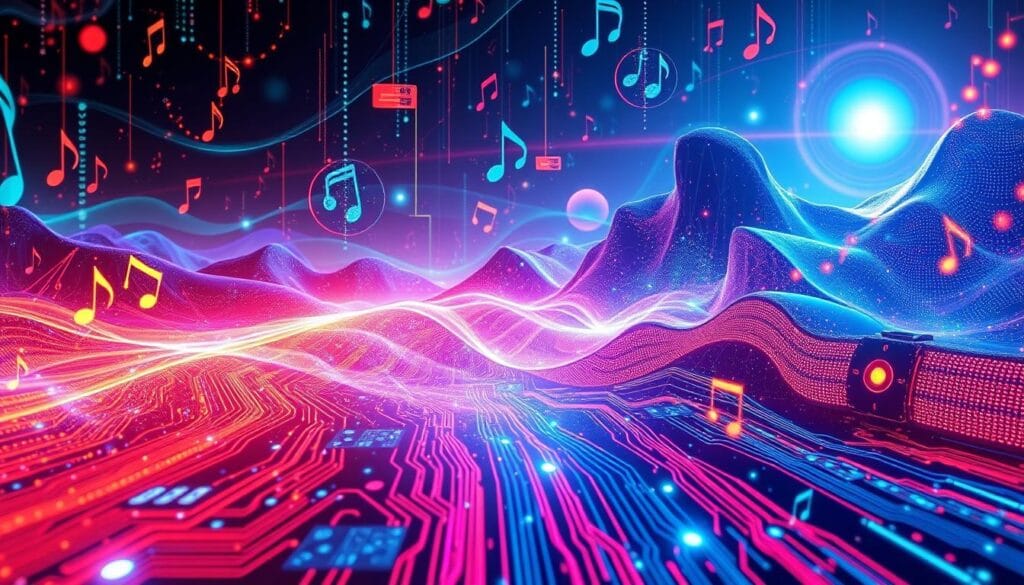
Overcoming Common Challenges in AI Music Creation
The world of AI music creation is growing fast. Musicians and producers face unique challenges. From keeping music original to fixing MIDI issues, it can be tough. But, with the right strategies, you can overcome these hurdles and make the most of AI in music.
One big worry is losing your unique sound when using AI tools. It’s easy to rely too much on AI, which can make your music sound less personal. To avoid this, mix your own ideas with AI’s suggestions. This way, you can create music that’s both unique and engaging.
Another challenge is getting your AI tools to work smoothly. Fixing MIDI problems, managing resources, and keeping software updated can be frustrating. Learn about your tools and have a plan for fixing issues. Stay on top of updates and solve performance problems quickly.
It’s also important to keep up with the latest in AI music. Go to events, follow experts, and join online groups. This helps you stay ahead in the fast-changing world of AI music.
“AI is a tool, not a replacement for human creativity. The key is to find the right balance and use AI to enhance, not overshadow, your artistic vision.”
By tackling these challenges and working with AI in a creative way, you can explore new musical possibilities. This opens up exciting opportunities in music production.
| Challenge | Strategies |
|---|---|
| Maintaining Originality |
|
| Troubleshooting MIDI AI |
|
| Staying Current with AI Music Tech |
|
Conclusion
The future of music is closely tied to MIDI AI technology. AI music tools are getting better, giving creators new ways to express themselves. They help with sound design, personalized music, and making music faster.
When you dive into MIDI AI music, you’ll find endless possibilities. But always keep your own artistic style in mind. The magic happens when AI’s efficiency meets human emotion in music.
This journey will have its ups and downs. Use MIDI AI to your advantage, but remember music’s soul comes from humans. Keep exploring and innovating in the world of future of AI music and MIDI AI potential. The future of music is in your hands.
FAQ
What is MIDI AI and how does it work?
What are the benefits of using AI-powered music tools?
What equipment and software do I need to get started with MIDI AI music creation?
How do I create music using MIDI AI?
Can I use AI-generated samples in my music production?
What are some advanced techniques for AI music production?
How can I integrate AI music tools into live performances?
How do I handle rights and royalties for AI-generated music?
What are some common challenges in AI music creation?
Source Links
- Staccato’s AI Instrument™ – Create original MIDI music with ease.
- MidiNet – Generates melodies and compositions bar by bar.
- MuseNet by OpenAI – AI that generates songs with multiple instruments and styles.
- Melomics – Generates both popular and artistic music compositions.
